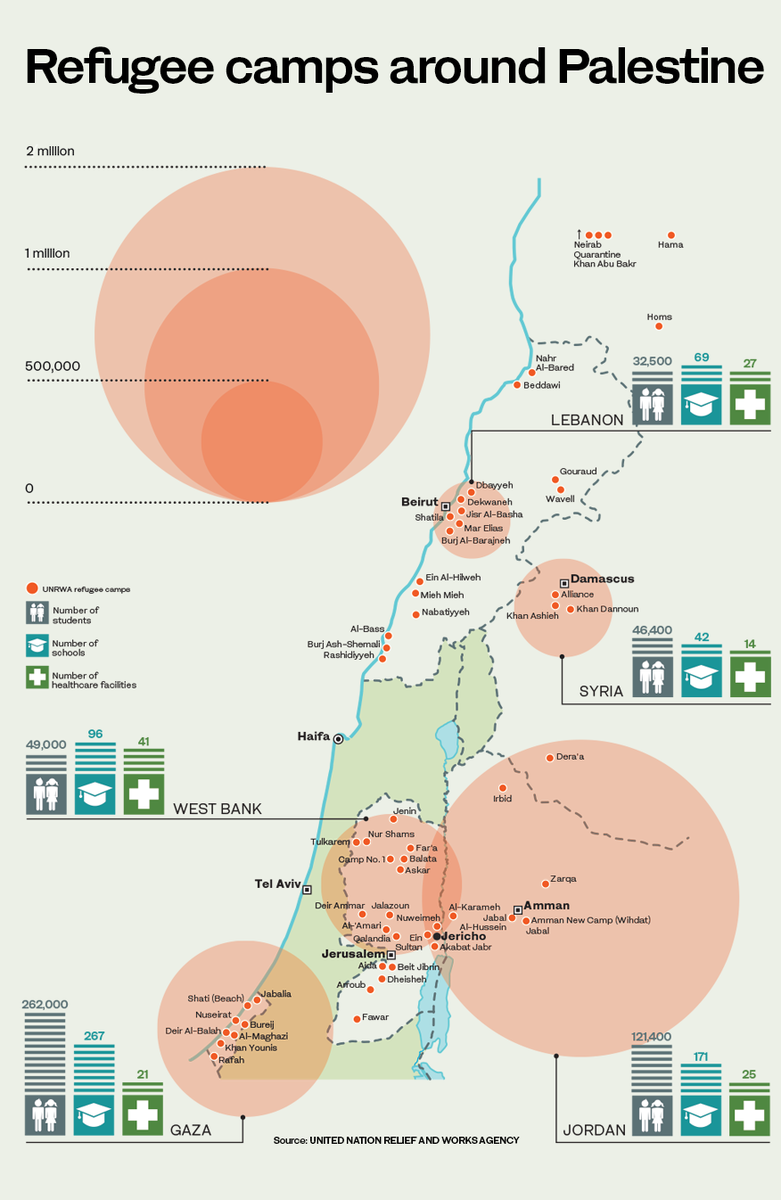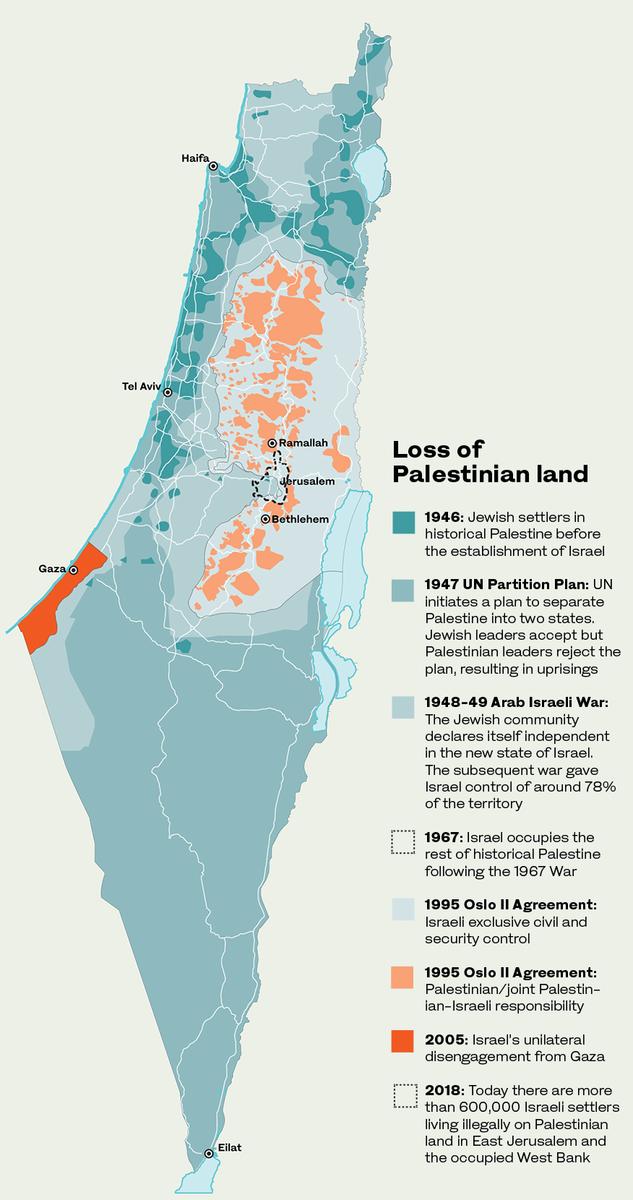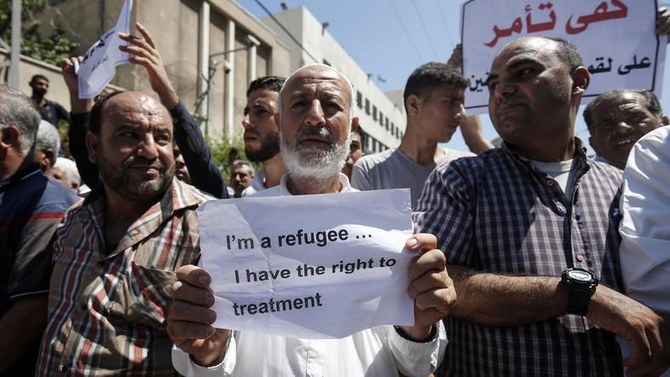DUBAI: Nakba Day is meant to remind the world of the tragedy of 1948, when more than 700,000 Palestinian Arabs were uprooted from their homes by the war that accompanied the Israeli declaration of independence and triggered a refugee crisis that is still not resolved.
Seventy-one years on, for millions of Palestinians, every checkpoint and every airport is a reminder of the time their families fled or were evicted from their ancestral lands in historical Palestine, leaving their properties and belongings behind.

“They were issued a Palestinian wathiqa (travel document), which by the way is not supposed to be a permanent thing. A travel document should be temporary,” Osama Sarhan, a Palestinian refugee with a Lebanese travel document, told Arab News.
Amid the chaos in 1948, Palestinians in Tarshiha were learning from newspapers and neighbors they needed to leave the place for about two weeks. So Sarhan’s family left the village before it was captured by Israeli troops during the war.
After spending two months in Lebanon, they had not heard anything about when they could return to Tarshiha. This is when the Lebanese government issued the refugees travel documents, which do not have the cachet of a passport. Passports are an official document issued by a government, certifying the holder’s identity and citizenship and entitling them to travel under its protection to and from foreign countries.
Egypt and Syria were two other Arab countries that issued travel documents to Palestinian refugees. For its part, Iraq issued Palestinians who fled the war in 1948 a one-year travel document. In September 1956, the Arab League came up with the Casablanca Protocol for the Treatment of Palestinians in Arab States, which laid down clear guidelines for host countries. The travel documents were meant to preserve the Palestinian identity of the refugees while granting them the same rights as the local population.
 “A travel document connotes you live in a certain area, that you are resident of that area, but does not necessarily give you rights to citizenship or nationality,” Oroub El-Abed, a postdoctoral research fellow at the British Academy, told Arab News.
“A travel document connotes you live in a certain area, that you are resident of that area, but does not necessarily give you rights to citizenship or nationality,” Oroub El-Abed, a postdoctoral research fellow at the British Academy, told Arab News.
The living conditions, requirements and rights differ for Palestinians from country to country. For instance, Palestinians in Lebanon, like other non-citizens, are unable to buy property. In Egypt, there are five different types of residency permits. How often a Palestinian needs to renew the document depends on the permit type. For instance, some Palestinian travel document holders are required to either return to Egypt every six months or submit proof of employment or student status abroad to be allowed to re-enter the country.
“In the host Arab countries, they were not treated well. Syria was the only country that agreed to give Palestinian refugees social and economic rights,” Palestinian academic Abbas Shiblak told Arab News.
Arab News approached the Lebanese, Syrian and Egyptian embassies for clarity on the matter, but failed to elicit any responses. A major handicap of travel documents is that they make traveling outside of host countries hard. “Most countries need a visa. I got asked a couple of times by airport officials what passport I held. Most did not understand when I tried to explain the nature of my travel documents,” Sarhan told Arab News.
El-Abed said this happens because Palestinian refugees have “no official proof of citizenship.” Another form of travel document that some Palestinians possess is the Jordanian temporary passport. The document was mostly given to Palestinian refugees after the Six Day War of 1967. Before that, Jordan used to grant Palestinians citizenship. A Palestinian in Jordan receives an ID card, which determines the status of the passport as well.
“The ID card is needed when one is crossing over the borders between Palestine and Jordan. If it is green, this means the Jordanian passport is a temporary one. If the card is yellow, then the passport is the permanent kind,” Haya Nasrallah told Arab News.
Nasrallah’s parents moved from Palestine to Jordan to receive their bachelor’s degrees, and applied for temporary Jordanian passports. “People do that because it’s a bit easier to get a visa using this passport compared with the Palestinian one,” she told Arab News. Nasrallah is able to travel back to Palestine because she has the Palestinian ID card, which she uses at the borders. However, not everyone is able to obtain it.
“In order to allow your kids to get it, you need to travel to Palestine when they are younger than 16 years and register their names in your ID. But to avoid problems with the Israelis, people try to register their kids way before they turn 16,” she said.
After the Oslo Accords of 1993, the Palestinian Authority (PA) began issuing a passport-like document to residents of the Palestinian territories. Trouble was, only individuals who were physically present in those territories during a census conducted by Israel in 1967 used to create the Palestinian Population Registry could obtain it.
Still, the PA wanted the document to be given a status almost equal to a passport instead of just a travel document. However, the Israelis vetoed the plan. “It is the only document that could be described as a passport and a travel document,” Shiblak told Arab News. Today, anyone who was unavailable in Palestine during the Israeli census of 1967 cannot “enter or live in the West Bank or Gaza,” he added.
Despite the daunting problems millions of Palestinians face due to their stateless status, some embrace the wathiqa they possess as part of their identity. “There is still proof that I am Palestinian” Sarhan told Arab News.
















